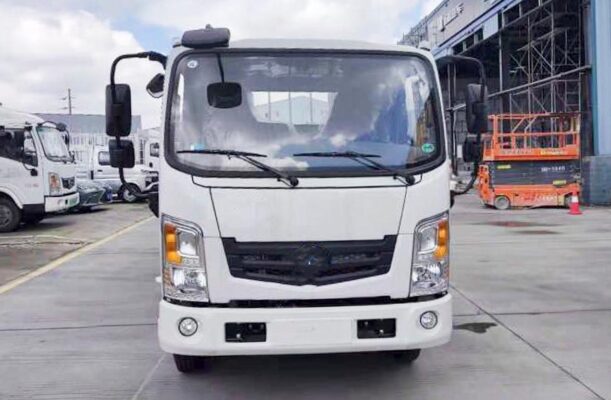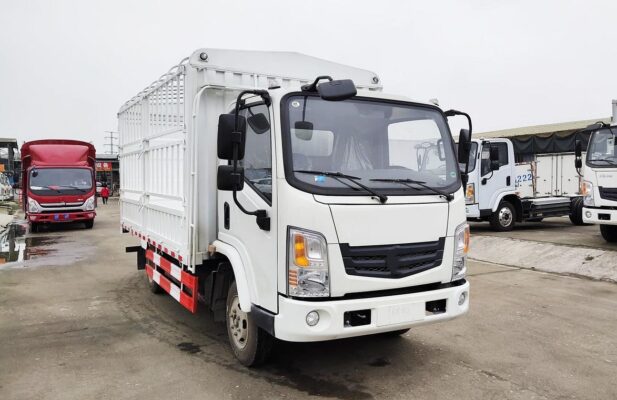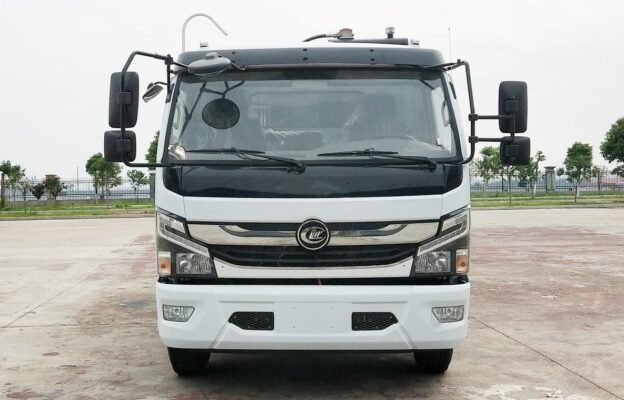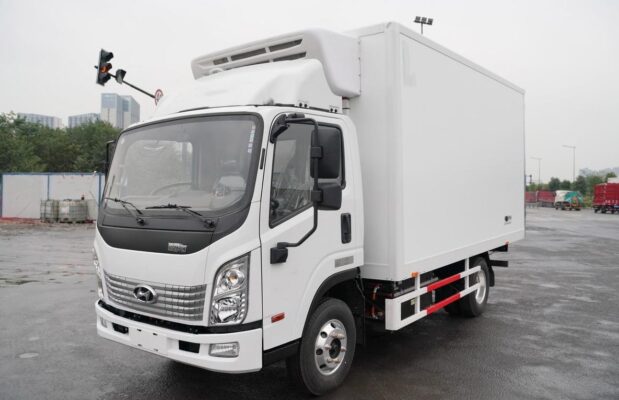Te mau parau apî no te mau pereoo uira
The Impact of Rainy Weather on Electric Pickup Trucks
Rainy weather presents a unique set of challenges for electric pickup trucks, affecting their performance, parururaa, and overall driving experience. As electric vehicles (EVs) continue to grow in popularity, understanding how various weather conditions, particularly rain, influence their operation is crucial for both current owners and potential buyers. This article delves into the specific ways rainy weather impacts electric pickups and provides insights into best practices for safe and efficient driving in such conditions.
1.How Rainy Weather Affects Electric Pickup Trucks
- Reduced Traction and Stability
One of the most immediate effects of rainy weather is the slickness of the roads. When water collects on the surface, it can create a layer between the tires and the asphalt, significantly reducing traction. This is particularly pronounced in front-wheel-drive electric pickups, where the front wheels are responsible for both steering and propulsion. In wet conditions, the decreased grip can lead to skidding, loss of control, and an overall unstable driving experience. Drivers may notice that their vehicle feels less responsive, which can heighten anxiety while driving. - Increased Tire Resistance
Wet surfaces also lead to increased tire resistance. As electric pickups drive over rain-soaked roads, the rolling resistance of the tires can rise, which requires more energy from the battery to maintain speed. This increased energy consumption not only affects the vehicle’s range but can also place additional stress on the electric drive system, potentially impacting performance over time. - Battery Performance Concerns
Rain can have a detrimental effect on the performance and longevity of an electric pickup’s battery. While modern electric vehicles are designed with robust battery management systems, excessive moisture can still disrupt the battery’s chemical reactions. Prolonged exposure to wet conditions can lead to decreased capacity, slower charging speeds, and ultimately a reduced driving range. Drivers might find themselves needing to recharge more frequently during rainy weather due to the combination of increased energy consumption and diminished battery performance. - Potential Electrical Issues
Given that electric pickups rely on batteries for their power source, there’s an inherent risk associated with water exposure. In severe cases, contact with water can lead to electrical malfunctions, including short circuits or failure of electrical systems. While manufacturers design electric vehicles to be water-resistant, it’s essential for owners to understand the risks and monitor their vehicle’s performance in adverse weather conditions.
2.Can Electric Pickup Trucks Operate Normally in Rainy Weather?
Yes, electric pickup trucks can operate normally in rainy conditions, but drivers must adopt mindful driving practices to ensure safety and efficiency. Here are some key strategies for driving electric pickups in the rain:
- Adjust Driving Techniques
Slowing down and increasing following distances are crucial when driving in wet conditions. Reduced speed can help mitigate the risks of skidding and loss of traction, while maintaining a safe distance from the vehicle ahead provides ample reaction time if sudden braking is necessary. - Routine Maintenance
Regular maintenance of the battery and overall vehicle is essential to ensure optimal performance. Checking battery health, inspecting tire tread depth, and ensuring that windshield wipers and headlights are functional can enhance safety and efficiency during rainy weather. - Mindful Route Planning
Planning routes that consider current weather conditions and road surfaces can also aid in reducing risks. Drivers may choose to avoid roads that are prone to flooding or pooling water, further ensuring a safe journey.
3.Does Rainy Weather Reduce the Range of Electric Pickup Trucks?
Yes, rainy weather can lead to a decrease in the range of electric pickup trucks. This reduction in range can be attributed to several factors:
- Increased Energy Consumption
As mentioned, wet surfaces increase tire resistance, which in turn raises energy consumption. Electric pickups must work harder to maintain speed on slick roads, leading to a faster depletion of the battery. - Battery Efficiency
The performance decline of the battery itself during rainy conditions can further impact the vehicle’s range. When the battery struggles due to moisture exposure or adverse weather, it may not deliver energy as efficiently, compounding the effects of increased rolling resistance. - Planning Charging Schedules
Given these factors, it is advisable for electric pickup drivers to plan their charging schedules in advance, especially when rain is forecasted. Ensuring that the battery is sufficiently charged before embarking on longer trips can help mitigate the effects of reduced range.
4.Safety Hazards Posed by Rain for Electric Pickup Trucks
Driving in the rain can introduce a host of safety hazards for electric pickup trucks, which include:
- Skidding and Loss of Control
The slickness of wet roads can lead to skidding, particularly when making sharp turns or sudden maneuvers. This increases the risk of accidents, making it imperative for drivers to exercise caution and adjust their driving behavior in response to changing conditions. - Electrical Malfunctions
While electric pickups are engineered to withstand moisture to a certain degree, the risk of electrical issues cannot be entirely eliminated. Water intrusion into the battery compartment or electrical connections could lead to malfunctions, which might compromise safety and vehicle performance. - Visibility Issues
Rain often comes with reduced visibility due to falling droplets and fogging on windows. Electric pickup drivers must ensure that their headlights and windshield wipers are functioning effectively to maintain clear sightlines while driving.
5.Protective Measures to Mitigate Rain’s Impact
To minimize the adverse effects of rain on electric pickup trucks, several protective measures can be implemented:
- Anti-Slip Tires
Installing high-quality, anti-slip tires designed for wet conditions can significantly improve grip on slippery roads. These tires feature tread patterns that channel water away from the contact patch, enhancing traction and reducing the risk of skidding. - Regular Battery Maintenance
Keeping the battery in good condition through regular maintenance checks is crucial. This includes ensuring that seals and connections are intact to minimize moisture exposure, which can affect performance. - Vehicle Protection
Timely cleaning and protecting both the exterior and interior of the vehicle can help mitigate the effects of rainy weather. Waxing the exterior can provide a barrier against moisture, while ensuring that interior components are well-protected from humidity can enhance durability.
6.Choosing an Electric Pickup Truck for Rainy Conditions
When selecting an electric pickup truck suitable for rainy weather, consider the following:
- Drive Type
Opting for a four-wheel-drive (4WD) electric pickup can provide better stability and handling in wet conditions. 4WD vehicles distribute power to all four wheels, enhancing traction and reducing the likelihood of skidding. - Reputable Brands
Choose a pickup from a reputable brand known for quality and reliability. Manufacturers with strong reputations often invest more in research and development, ensuring their vehicles can withstand various weather conditions. - Model and Configuration
Selecting a model that aligns with your specific needs and budget is essential. Features such as advanced safety technologies, all-terrain capabilities, and effective battery management systems can contribute to better performance in rainy conditions.
Conclusion
In summary, rainy weather significantly impacts electric pickup trucks by creating slick road conditions, reducing traction, and potentially affecting battery performance and range. While these vehicles can operate normally in rain, drivers must adopt safe driving techniques and ensure regular maintenance to mitigate risks. Potential buyers should carefully consider factors such as drive type, tire quality, and brand reputation when selecting an electric pickup suited for wet conditions. As electric vehicles continue to gain traction in the automotive market, understanding their performance in various weather conditions will be critical for maximizing their effectiveness and safety.



